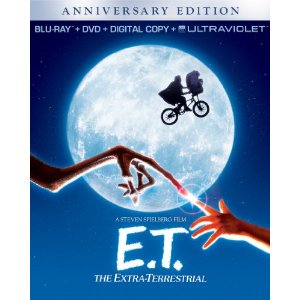Plot: This true story takes place in the early days of television. One of the most popular and successful program formats was the quiz show, in which contestants competed for huge cash prizes by answering questions. Charles Van Doren (played by Ralph Fiennes) was a member of one of America’s most distinguished literary families, and he became an immensely popular contestant, on “Twenty-One.” When it turned out that the quiz shows were fixed, and that contestants were supplied with the answers by the shows’ producers, Van Doren became the symbol of betrayal.
In this film, Van Doren is contrasted with Herb Stempel (John Turturro), and Congressional staff investigator Dick Goodwin (Rob Morrow). Stempel, a Jewish man from Brooklyn with “a face for radio” is bitter over being pushed aside for the impeccably WASP-y Columbia professor. Goodwin shares the Jewish outsider’s background with Stempel and the Ivy League polish (as he frequently mentions, he was first in his class at Harvard Law School) with Van Doren. Dazzled by Van Doren, Goodwin does not want to believe that he, like Stempel, participated in the fraud. When he finds out that Van Doren did, Goodwin tries to protect him from being discovered. He wants to bring the real culprits, the network executives, to light. But when the hearings are held, the Congressmen’s cozy relationships with the network executives prevent any tough questions from being asked. The producer takes the blame.
Eight years later, the producer was back in television. Stempel became a bureaucrat. Van Doren, forced to leave Columbia, lived very privately, working for Encyclopedia Britannica. Goodwin went to work for President Kennedy and later wrote highly respected books.
Discussion: This is an outstanding drama that provides an excellent opportunity for examining the way that people make moral choices. Stempel cheats because he wants to be accepted and respected, and because he believes that is the way the world works. Nevertheless, he is outraged and bitter when he finds that he has been cheated, that the producer has no intention of living up to his promise to find him a job in television. And it is important to note that his decision to tell the truth was based on vengeance, not on taking responsibility for a moral failure.
When first presented with the option of cheating, Van Doren reflects (“I’m just wondering what Kant would make of this”), and then refuses. Indeed, he concludes this is just a test of his suitability, and one that he has passed. Once on the program, however, he is given a question he had answered correctly in the interview. He knows the answer, but he also knows that it is not a legitimate competition for him to answer it. (He does not know that Stempel has agreed to fail). At that moment, what is he thinking? What moral calculus goes through his mind? Is this the decision to cheat, or is that a separate decision, later? In the movie’s most painful scene, Van Doren must tell his father what he has done. At first, Van Doren makes some distinctions between being given the questions, so he can get the answers on his own, and being given the answers. But he knows that both are equally wrong.
Why, then, did he do it? The movie suggests that it was in part a way to establish himself as independently successful, out of the shadow of his parents and uncle. He enjoyed the fame and the money. He argues that no one is being hurt by it. Goodwin, on the other hand, sees that it is wrong, and never for a moment hesitates when the producer tries to buy him off. Yet, as Goodwin’s wife points out, he makes his own moral compromises when he tries to protect Van Doren. In part, he does it because he is after those he considers the real culprits. But in part he does it because he likes Van Doren, and because as much as he takes pride in being first in his class at Harvard, some part of him still thinks that the Van Dorens are better than he is.
Questions for Kids:
· Why did Stempel agree to cheat? Why did he tell the truth to the investigators? Why did Van Doren cheat?
· What were some of the feelings Van Doren had about his parents? How can you tell?
· In what ways was Goodwin like Stempel? In what ways was he like Van Doren? Why was Goodwin intimidated by the Van Dorens?
· Who was responsible for the “quiz show scandals?” Was the outcome fair? Who should have been punished, and how?
Connections: Goodwin’s account of the story can be found in his book, Remembering America: A Voice from the 60s. “Champagne for Caesar,” a light satiric comedy on the same subject, was produced in 1950, several years before the events portrayed in this movie. It is very funny, with outstanding performances by Ronald Coleman as the professor/contestant and Celeste Holm as the femme fatale brought in to shake his concentration. The question they find to stump him with is a lulu! Van Doren’s father is played by Paul Scofield, who appeared as Sir Thomas More in “A Man for All Seasons.” Goodwin’s wife is played by future Oscar- winner Mira Sorvino.

